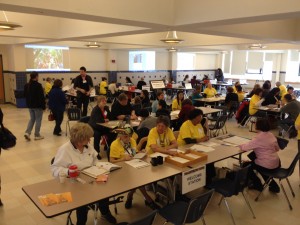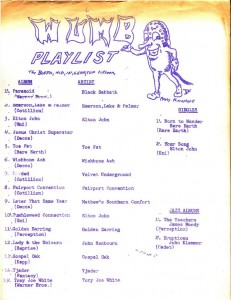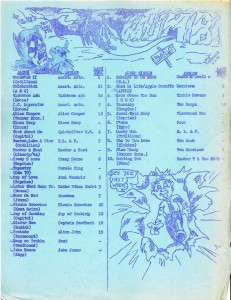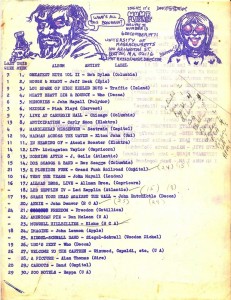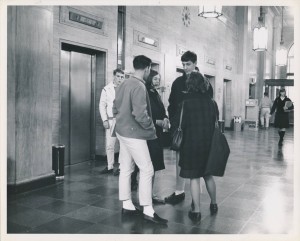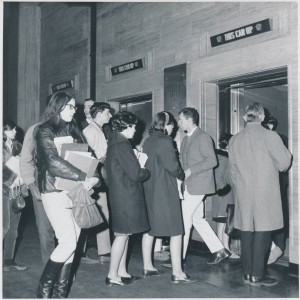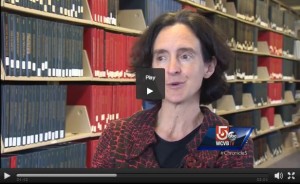
Carolyn Goldstein, interviewed about the Mass. Memories Road Show as part of an episode about UMass Boston for WCBV Boston’s Chronicle. Click the image to view the video.
The Mass. Memories Road Show was featured last week on WCBV Boston’s Chronicle as part of a segment produced on the occasion of the university’s 50th anniversary. The episode included photographs from the collection and recorded footage from a number of Mass. Memories Road Show events, including last year’s stops in Lexington and Provincetown.
Are you interested in bringing a Road Show to your community? We are now seeking applications for events to be held in 2015. The deadline to apply is July 25, 2014, and applicants will be notified in early September. Click here for information about how to apply, or email carolyn.goldstein@umb.edu with any questions.
Mark your calendars for our next two events in two Boston neighborhoods:
Allston-Brighton Mass. Memories Road Show
Veronica B. Smith Multi-Service Senior Center
20 Chestnut Hill Avenue
Sunday, October 26, 2014
West End Mass. Memories Road Show
West End Museum
150 Staniford Street
Saturday, November 15
The Mass. Memories Road Show is a statewide digital history project that documents people, places and events in Massachusetts history through family photographs and stories. In partnership with teams of local volunteers, we organize public events to scan family and community photographs and videotape “the stories behind the photos.” The images and videos are indexed and incorporated into an online educational database. Since its launch, the project has gathered more than 8,000 photographs and stories from across the state. It is supported in part by the Patricia C. Flaherty ’81 Endowed Fund at UMass Boston.
University Archives & Special Collections in the Joseph P. Healey Library at UMass Boston was established in 1981 as a repository to collect archival material in subject areas of interest to the university, as well as the records of the university itself. The mission and history of UMass Boston guide the collection policies of University Archives & Special Collections, with the university’s urban mission and strong support of community service reflected in the records of and related to urban planning, social welfare, social action, alternative movements, community organizations, war and social consequence, and local history related to neighboring communities. To learn more, visit blogs.umb.edu/archives.
